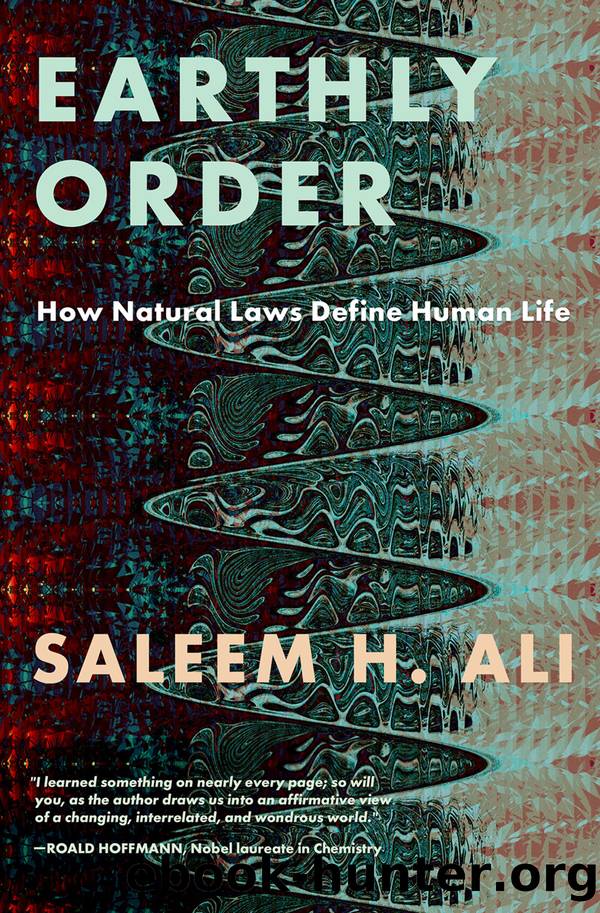Earthly Order by Saleem H. Ali;

Author:Saleem H. Ali;
Language: eng
Format: epub
Publisher: Oxford University Press USA
Published: 2022-10-15T00:00:00+00:00
Not only are equilibria not inherently âright,â but they may also be far more complicated in their temporal and spatial dimensions than we might otherwise realize. One of Schellingâs key contributions to economic theory was the observation that equilibria may persist for a range of changing variables. Utility functions for consumers may encounter a rapid change only after certain thresholds are reached. The salience of the threshold had its roots in groundbreaking work by systems scientist Herbert Simon in his questioning of the traditional view of economists during the 1950s that consumers maximize their utility. Simon recognized that rational choice had its limits and was âboundedâ by the information available to consumers and also their preferences for satiation. This insight added complexity and texture to our understanding of utility functions for consumers and ushered in the subfield of behavioral economics. Around the time that Simon was developing his views on bounded rationality, computer science was reaching maturity as well, and many of his ideas helped to nurture the field of artificial intelligence (AI), whose potential applications to earthly order we will discuss in the next chapter. Simonâs greatest contribution to social science was his willingness to embrace nuance and always question the contrived elegance of equilibria. In this spirit he coined a new term âsatisficingââa portmanteau of satisfy and sufficeâto describe human behavior in the context of bounded rationality. Unlike utility maximizing options, satisficing options were those which are suboptimal and dependent on a process of alternative searches until a threshold is met for decision. Simonâs realization that mathematical optimization was often limited in human decisions because of âcomputational intractabilityâ and a paucity of information transformed social science.
A year before Simonâs death, in 2000, Carnegie Mellon University hosted a remarkable symposium titled âEarthwareâ to consider how the metaphors of âsoftwareâ and âhardware,â as the architecture of computational order, could be applied to the Earth. In introducing Simon as the keynote speaker, the President of Carnegie Mellon, Jared Cohon, noted that at the turn of the millennium the concept of bounded rationality, more than half a century after its coinage, still held dominant currency. Cohon had been one of my mentors during his time as Dean of the Yale School of the Environment when I pursued my masterâs degree there from 1994 to1996. Despite his hectic schedule as dean, Dr. Cohon taught a specialized course on decision analysis for the environment, and I was one of only five students who took that course in 1995. I got to know Cohon as a scholar who was always measured in his prose and not prone to exaggerate just for theatrical appeal. His accolade for Simon was, in that vein, not hyperbolic. The conceptual tools Simon had provided for economics, decision science, and computer engineering to consider suboptimality had profound implications for how we viewed social systems. The 1978 solo Nobel Prize citation noted his studies of âcausal orderâ in complex social systems. A key aspect of his work was to elucidate the way directionality impacted order in natural and social systems.
Download
This site does not store any files on its server. We only index and link to content provided by other sites. Please contact the content providers to delete copyright contents if any and email us, we'll remove relevant links or contents immediately.
Man-made Catastrophes and Risk Information Concealment by Dmitry Chernov & Didier Sornette(6001)
The Revenge of Geography: What the Map Tells Us About Coming Conflicts and the Battle Against Fate by Kaplan Robert D(4066)
Zero Waste Home by Bea Johnson(3829)
COSMOS by Carl Sagan(3617)
Good by S. Walden(3544)
In a Sunburned Country by Bill Bryson(3530)
The Fate of Rome: Climate, Disease, and the End of an Empire (The Princeton History of the Ancient World) by Kyle Harper(3055)
A Wilder Time by William E. Glassley(2854)
Camino Island by John Grisham(2792)
Organic Mushroom Farming and Mycoremediation by Tradd Cotter(2684)
The Ogre by Doug Scott(2678)
Human Dynamics Research in Smart and Connected Communities by Shih-Lung Shaw & Daniel Sui(2498)
Energy Myths and Realities by Vaclav Smil(2482)
The Traveler's Gift by Andy Andrews(2453)
9781803241661-PYTHON FOR ARCGIS PRO by Unknown(2365)
Inside the Middle East by Avi Melamed(2348)
Birds of New Guinea by Pratt Thane K.; Beehler Bruce M.; Anderton John C(2248)
A History of Warfare by John Keegan(2236)
And the Band Played On by Randy Shilts(2186)
